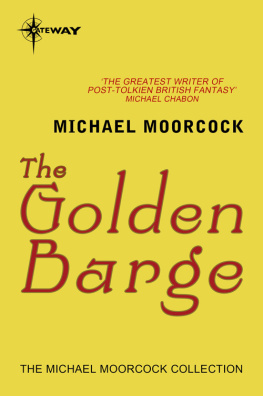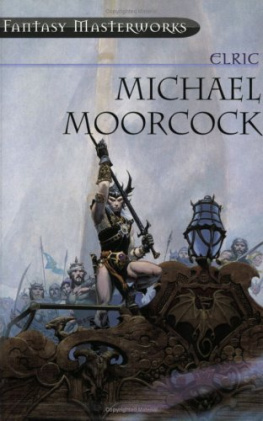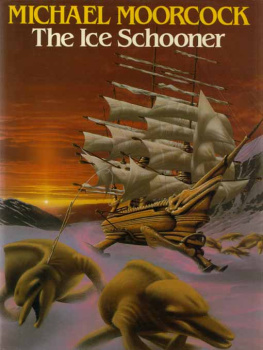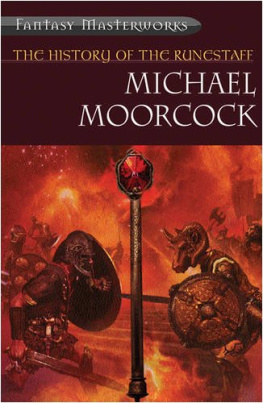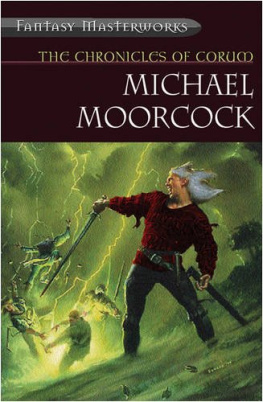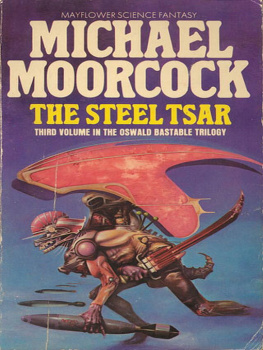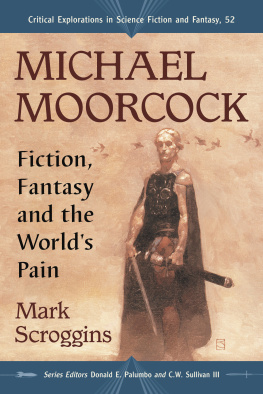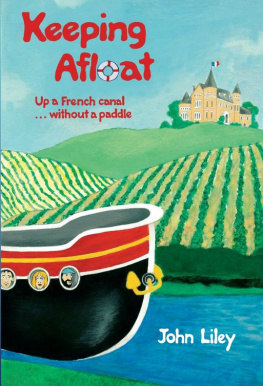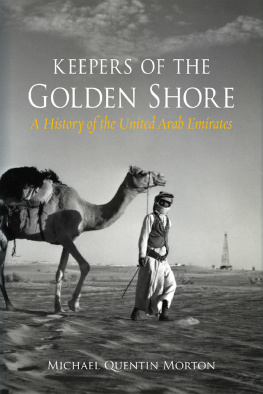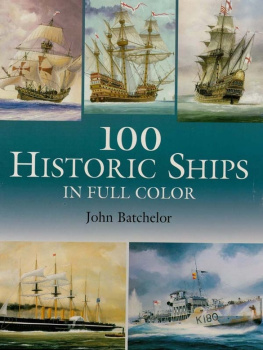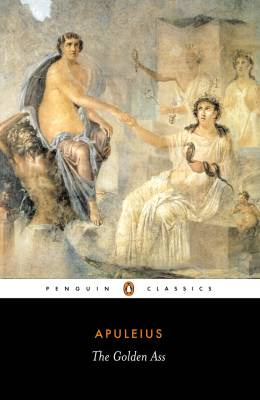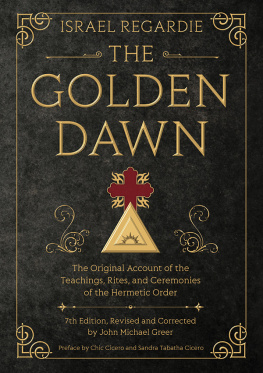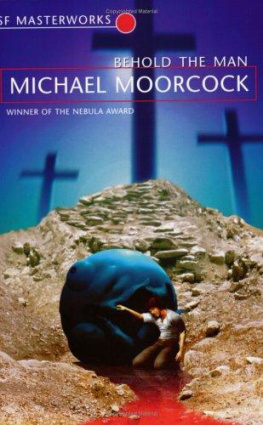Enter the SF Gateway
In the last years of the twentieth century (as Wells might have put it), Gollancz, Britains oldest and most distinguished science fiction imprint, created the SF and Fantasy Masterworks series. Dedicated to re-publishing the English languages finest works of SF and Fantasy, most of which were languishing out of print at the time, they were and remain landmark lists, consummately fulfilling the original mission statement:
SF MASTERWORKS is a library of the greatest SF ever written, chosen with the help of todays leading SF writers and editors. These books show that genuinely innovative SF is as exciting today as when it was first written.
Now, as we move inexorably into the twenty-first century, we are delighted to be widening our remit even more. The realities of commercial publishing are such that vast troves of classic SF & Fantasy are almost certainly destined never again to see print. Until very recently, this meant that anyone interested in reading any of these books would have been confined to scouring second-hand bookshops. The advent of digital publishing has changed that paradigm for ever.
The technology now exists to enable us to make available, for the first time, the entire backlists of an incredibly wide range of classic and modern SF and fantasy authors. Our plan is, at its simplest, to use this technology to build on the success of the SF and Fantasy Masterworks series and to go even further.
Welcome to the new home of Science Fiction & Fantasy. Welcome to the most comprehensive electronic library of classic SFF titles ever assembled.
Welcome to the SF Gateway.
Contents
INTRODUCTION TO THE MICHAEL MOORCOCK COLLECTION
John Clute
H E IS NOW over 70, enough time for most careers to start and end in, enough time to fit in an occasional half-decade or so of silence to mark off the big years. Silence happens. I dont think I know an author who doesnt fear silence like the plague; most of us, if we live long enough, can remember a bad blank year or so, or more. Not Michael Moorcock. Except for some worrying surgery on his toes in recent years, he seems not to have taken time off to breathe the air of peace and panic. There has been no time to spare. The nearly 60 years of his active career seems to have been too short to fit everything in: the teenage comics; the editing jobs; the pulp fiction; the reinvented heroic fantasies; the Eternal Champion; the deep Jerry Cornelius riffs; NEW WORLDS; the 1970s/1980s flow of stories and novels, dozens upon dozens of them in every category of modern fantastika; the tales of the dying Earth and the possessing of Jesus; the exercises in postmodernism that turned the world inside out before most of us had begun to guess we were living on the wrong side of things; the invention (more or less) of steampunk; the alternate histories; the Mitteleuropean tales of sexual terror; the deep-city London riffs: the turns and changes and returns and reconfigurations to which he has subjected his oeuvre over the years (he expects this new Collected Edition will fix these transformations in place for good); the late tales where he has been remodelling the intersecting worlds he created in the 1960s in terms of twenty-first-century physics: for starters. If you cant take the heat, I guess, stay out of the multiverse.
His life has been full and complicated, a life he has exposed and hidden (like many other prolific authors) throughout his work. In Mother London (1988), though, a nonfantastic novel published at what is now something like the midpoint of his career, it may be possible to find the key to all the other selves who made the 100 books. There are three protagonists in the tale, which is set from about 1940 to about 1988 in the suburbs and inner runnels of the vast metropolis of Charles Dickens and Robert Louis Stevenson. The oldest of these protagonists is Joseph Kiss, a flamboyant self-advertising fin-de-sicle figure of substantial girth and a fantasticating relationship to the world: he is Michael Moorcock, seen with genial bite as a kind of G.K. Chesterton without the wearying punch-line paradoxes. The youngest of the three is David Mummery, a haunted introspective half-insane denizen of a secret London of trials and runes and codes and magic: he too is Michael Moorcock, seen through a glass, darkly. And there is Mary Gasalee, a kind of holy-innocent and survivor, blessed with a luminous clarity of insight, so that in all her apparent ignorance of the onrushing secular world she is more deeply wise than other folk: she is also Michael Moorcock, Moorcock when young as viewed from the wry middle years of 1988. When we read the book, we are reading a book of instructions for the assembly of a London writer. The Moorcock we put together from this choice of portraits is amused and bemused at the vision of himself; he is a phenomenon of flamboyance and introspection, a poseur and a solitary, a dreamer and a doer, a multitude and a singleton. But only the three Moorcocks in this book, working together, could have written all the other books.
It all began as it does for David Mummery in Mother London in South London, in a subtopian stretch of villas called Mitcham, in 1939. In early childhood, he experienced the Blitz, and never forgot the extraordinariness of being a participant however minute in the great drama; all around him, as though the world were being dismantled nightly, darkness and blackout would descend, bombs fall, buildings and streets disappear; and in the morning, as though a new universe had taken over from the old one and the world had become portals, the sun would rise on glinting rubble, abandoned tricycles, men and women going about their daily tasks as though nothing had happened, strange shards of ruin poking into altered air. From a very early age, Michael Moorcocks security reposed in a sense that everything might change, in the blinking of an eye, and be rejourneyed the next day (or the next book). Though as a writer he has certainly elucidated the fears and alarums of life in Aftermath Britain, it does seem that his very early years were marked by the epiphanies of war, rather than the inflictions of despair and beclouding amnesia most adults necessarily experienced. After the war ended, his parents separated, and the young Moorcock began to attend a pretty wide variety of schools, several of which he seems to have been expelled from, and as soon as he could legally do so he began to work full time, up north in Londons heart, which he only left when he moved to Texas (with intervals in Paris) in the early 1990s, from where (to jump briefly up the decades) he continues to cast a Martian eye: as with most exiles, Moorcocks intensest anatomies of his homeland date from after his cunning departure.
But back again to the beginning (just as though we were rimming a multiverse). Starting in the 1950s there was the comics and pulp work for Fleetway Publications; there was the first book (Caribbean Crisis, 1962) as by Desmond Reid, co-written with his early friend the artist James Cawthorn (1929-2008); there was marriage, with the writer Hilary Bailey (they divorced in 1978), three children, a heated existence in the Ladbroke Grove/Notting Hill Gate region of London he was later to populate with Jerry Cornelius and his vast family; there was the editing of NEW WORLDS, which began in 1964 and became the heartbeat of the British New Wave two years later as writers like Brian W. Aldiss and J.G. Ballard, reaching their early prime, made it into a tympanum, as young American writers like Thomas M. Disch, John T. Sladek, Norman Spinrad and Pamela Zoline found a home in London for material they could not publish in America, and new British writers like M. John Harrison and Charles Platt began their careers in its pages; but before that there was Elric. With

